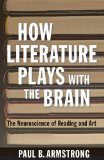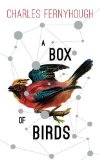January 15, 2014

“An Amazon Best Book of the Month, January 2014”:
Andrew’s Brain: A Novel by E.L. Doctorow (Random House, 2014)
(kindle ed.), (amazon.co.uk), (UK kindle ed.)
Book description from the publisher:
This brilliant new novel by an American master, the author of Ragtime, The Book of Daniel, Billy Bathgate, and The March, takes us on a radical trip into the mind of a man who, more than once in his life, has been the inadvertent agent of disaster.
Speaking from an unknown place and to an unknown interlocutor, Andrew is thinking, Andrew is talking, Andrew is telling the story of his life, his loves, and the tragedies that have led him to this place and point in time. And as he confesses, peeling back the layers of his strange story, we are led to question what we know about truth and memory, brain and mind, personality and fate, about one another and ourselves. Written with psychological depth and great lyrical precision, this suspenseful and groundbreaking novel delivers a voice for our times—funny, probing, skeptical, mischievous, profound. Andrew’s Brain is a surprising turn and a singular achievement in the canon of a writer whose prose has the power to create its own landscape, and whose great topic, in the words of Don DeLillo, is “the reach of American possibility, in which plain lives take on the cadences of history.”
Comments (0)
- fiction,new books
September 20, 2013

How Literature Plays with the Brain: The Neuroscience of Reading and Art by Paul B. Armstrong (Johns Hopkins University Press, 2013)
(kindle ed.), (amazon.co.uk)
Book description from the publisher:
“Literature matters,” says Paul B. Armstrong, “for what it reveals about human experience, and the very different perspective of neuroscience on how the brain works is part of that story.” In How Literature Plays with the Brain, Armstrong examines the parallels between certain features of literary experience and functions of the brain. His central argument is that literature plays with the brain through experiences of harmony and dissonance which set in motion oppositions that are fundamental to the neurobiology of mental functioning. These oppositions negotiate basic tensions in the operation of the brain between the drive for pattern, synthesis, and constancy and the need for flexibility, adaptability, and openness to change.
The challenge, Armstrong argues, is to account for the ability of readers to find incommensurable meanings in the same text, for example, or to take pleasure in art that is harmonious or dissonant, symmetrical or distorted, unified or discontinuous and disruptive.
How Literature Plays with the Brain is the first book to use the resources of neuroscience and phenomenology to analyze aesthetic experience. For the neuroscientific community, the study suggests that different areas of research—the neurobiology of vision and reading, the brain-body interactions underlying emotions—may be connected to a variety of aesthetic and literary phenomena. For critics and students of literature, the study engages fundamental questions within the humanities: What is aesthetic experience? What happens when we read a literary work? How does the interpretation of literature relate to other ways of knowing?
Google Books preview (scroll past blank page):
See also: Author’s webpage
Comments (2)
- cognitive science,culture,fiction,new books
May 27, 2013

A Box Of Birds by Charles Fernyhough (Unbound, 2013)
(kindle ed.), (amazon.co.uk)
Book description from the publisher:
Neuroscientist Dr Yvonne Churcher has problems in the world beyond her lab. One of her students, James, a dangerously attractive animal rights campaigner, has set out to challenge her certainties about how the brain works. His brilliant, unstable friend, Gareth, is obsessed with the biochemical basis of memory. When Gareth tries to persuade Yvonne to get involved with a plan to stimulate memory artificially, it sets off a chain of events involving unscrupulous biotech companies, stolen brain-mapping data and a strange brand of eco-terrorism. Set in a near-future world of experimental brain research, A Box of Birds combines the pace of a literary thriller with a darkly intense love story. It brilliantly dramatizes the clash between two of the predominant philosophical positions of our age: the materialist view that science has all the answers and that ‘we’ are nothing more than brain cells and neurotransmitters, and the therapy-inspired view that the stories we tell about ourselves and our pasts have the capacity to change our future. As Yvonne Churcher is drawn towards an ever more complex and disturbing truth, she has to face tough questions. Can neuroscience really change our understanding of who we are? Or are we all at the mercy of our own need to make coherent stories?
See also: Author’s website, Review/discussion at Conscious Entities
Comments (0)
- fiction,new books
January 10, 2013

Shortlisted for the Man Booker Prize 2012:
Umbrella by Will Self (Grove Press, 2013)
(kindle ed.), (amazon.co.uk)
Book description from the publisher:
“A brother is as easily forgotten as an umbrella.”—James Joyce, Ulysses
Radical and uncompromising, Umbrella is a tour de force from one of England’s most acclaimed contemporary writers, and Self’s most ambitious novel to date. Moving between Edwardian London and a suburban mental hospital in 1971, Umbrella exposes the twentieth century’s technological searchlight as refracted through the dark glass of a long term mental institution. While making his first tours of the hospital at which he has just begun working, maverick psychiatrist Zachary Busner notices that many of the patients exhibit a strange physical tic: rapid, precise movements that they repeat over and over. One of these patients is Audrey Dearth, an elderly woman born in the slums of West London in 1890. Audrey’s memories of a bygone Edwardian London, her lovers, involvement with early feminist and socialist movements, and, in particular, her time working in an umbrella shop, alternate with Busner’s attempts to treat her condition and bring light to her clouded world. Busner’s investigations into Audrey’s illness lead to discoveries about her family that are shocking and tragic.
Google Books preview:
See also: Author’s website
Comments (0)
- fiction,new books






